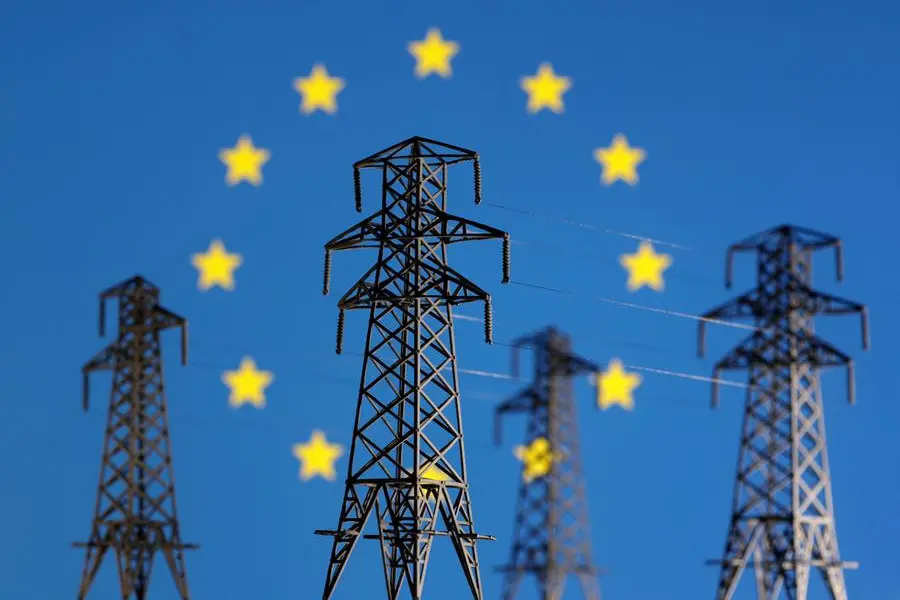PHOTO
FRANKFURT - Boosting German power transmission lines to accommodate a shift to zero-carbon generation industry will require 14,197 km (8821.61 miles) of new networks costing billions of euros, the country's high voltage grid firms (TSOs) said on Friday.
A rolling development plan presented for public consultation by the four companies calls for additional investments of 128.3 billion euros ($137.72 billion) from now up to 2045, completion of some may need to be brought forward to 2037.
The total sum was broken down into 41.6 billion for onshore and 86.7 billion euros for offshore measures.
The plan will require 5,742 km onshore and 8,455 km offshore cables as well as the construction of five big direct current lines onshore, and 20 offshore cable transmission systems, the companies said in a joint statement. The consultation will run until April 25.
The four companies - Amprion, 50Hertz, TenneT and TransnetBW - have to ensure the stable performance of the grids in the face of a growing share of more intermittent power supply from renewable sources.
Germany wants to obtain 80% of its 2030 power output from renewables such as wind and solar energy to meet a target of a 65% cut in overall CO2 emissions compared with 1990.
Berlin also wants the power sector to be 100% green by 2035, while assuming a doubling of power demand by 2045.
To get there, installed power capacity must rise five-fold from today's level to reach 700 gigawatts in 2045, while many grid measures initially planned for 2045 may be brought forward, the TSOs said.
Power grids must be extended to reach green energy sites and transmit their output, crucially connecting the industrial south to northern wind power, and to hook up new electrolysis plants which will produce green hydrogen from electricity.
The operators' costs are mainly shouldered by consumers via grid usage fees, which account for about a quarter of electricity bills.
Confronted with the looming costs, the Dutch government is trying to get out of its stake in its German TenneT division.
($1 = 0.9316 euros)
(Reporting by Vera Eckert, editing by Tomasz Janowski)





















